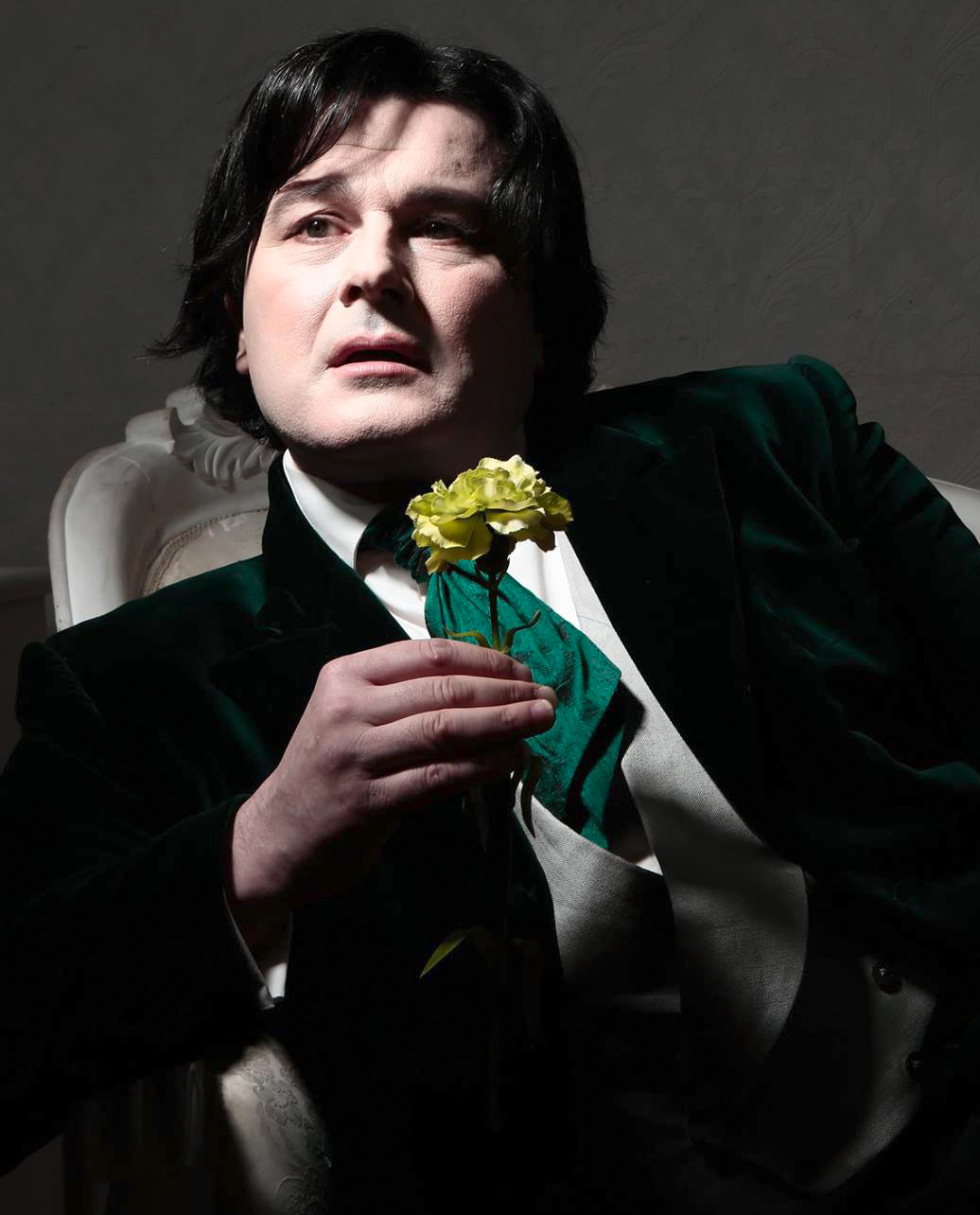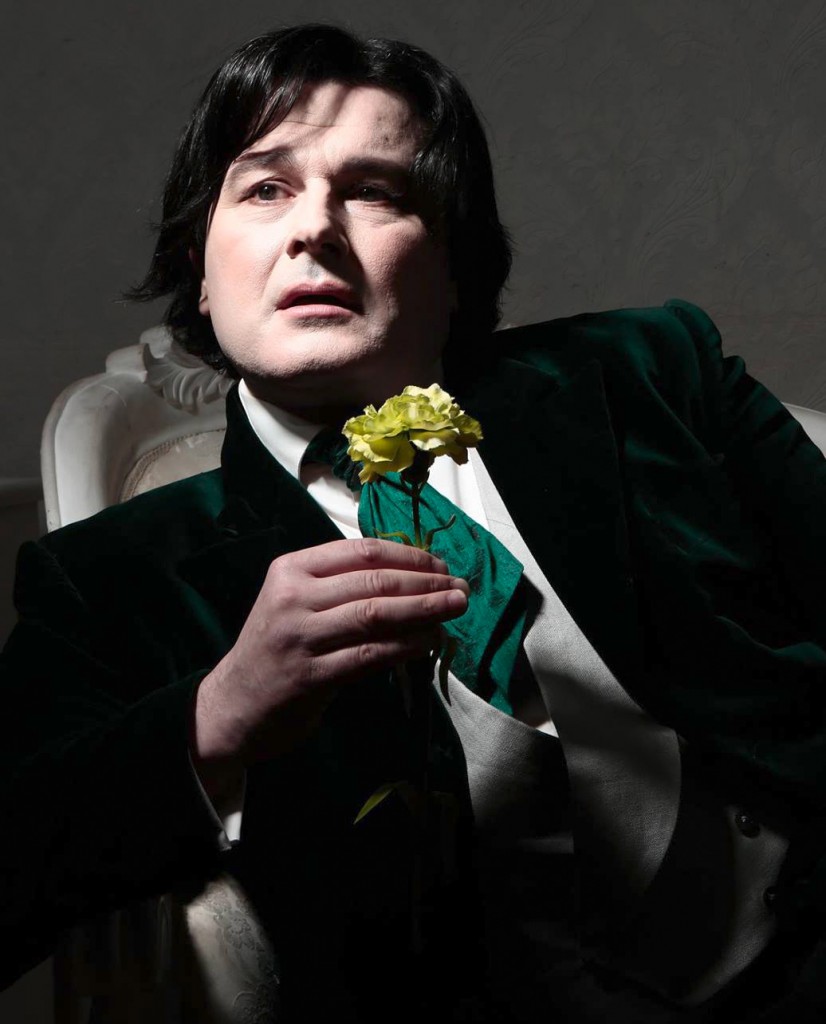The title of the evening’s entertainment is presumably a play on, Mad About the Boy, the song by Noel Coward whose clipped, mannered tones find an echo in Gerard Logan’s polished performance of one of literature’s most loved yet mistreated scion’s. Of course the love and the mistreatment belong to different ages. Oscar Fingal O’Flahertie Wills Wilde is up there with Alan Turing as brilliant men whose lives and contribution to society was cruelly terminated by being victims of a morbid morality which found its way into law. The tragedy of both these lives is worthy material for dramatic presentation. Yet I repeat what I have said elsewhere that if a producer, adapter or director is taking something from a different medium let it have something peculiar to the medium of theatre to engage us.
A one-man show has obvious challenges, but equally offers a world of possibilities. Unconfined by a rigid or specific set our imaginations, at the merest prompting can take us anywhere the dramatist would care to lead. In the first half of the show director and dramatist, Gareth Armstrong, has his Oscar in black Victorian morning suit on a black stage against a black background and there we stay. Moreover, in De Profundis, there is little or nothing of the wit we readily associate with Wilde. It is, in it’s first part, which seemed to make up most of the first offering, a littany of the shortcomings of Lord Alfred Douglas over which Wilde has had time to ponder at Her Majesty’s pleasure. We could have been in the courtroom, we could have been at the Cafe Royal, we could have been at the Cadogan Hotel, where, as Betjeman, describes:
He sipped at a weak hock and seltzer
As he gazed at the London skies
Through the Nottingham lace of the curtains
Or was it his bees-winged eyes ?
We might even have been taken on an excursion to Worthing, but in the prison we stayed. Armstrong had his man stand up, sit down, cross his legs and walk around the table. We deserved a little more.
In the second offering, The Ballad of Reading Gaol, we find Mr Logan in a light linen suit and on a different chair, this time a wicker or Lloyd loom affair, suggesting of a sunny veranda. But now we have the melodramatic rhythms of the ballad form for which the black suit may well have been suitable given the subject of the last days in prison of a murderer and the dehumanizing effect of the penal system in Victorian England. Here an illuminated mouth would have sufficed to portray the indignation.
So despite the clear talent of Mr.Logan, his resonant and clearly articulated voice (no mean achievement these days of TV stars) and precision movement, this is a missed opportunity to bring something new to the final works of one of the great literary talents of the 19th century. ★★☆☆☆ Graham Wyles 17/01/15



